
People Debate The End Of Brain Rot As Guy Reveals The Three Trends That Signal It’s Coming
Slowly, although not imperceptibly, short-form internet content has become not only the norm, but in many ways a dominant method of how people consume anything from memes to news and even music. Recently, this has led to a growing awareness of seemingly mindless, repetitive posts and trends that some call “brain rot.”
TikToker and brand strategist Eugene Healey went viral for his theorizing that we will move towards a post-brain rot era of content. If some of those words seem confusing, don’t worry, we’ll get you up to speed. We reached out to Eugene via email and will update the article when he gets back to us.
More info: TikTok
If you scroll long enough on TikTok, YouTube shorts or IG’s reels, you’ve probably seen a lot of repetitive, low effort content
Image credits: eugbrandstrat
A brand strategist recently went viral for his theory that social media consumption trends are shifting
Image credits: javi_indy / freepik (not the actual photo)
Image credits: freepik (not the actual photo)
Image credits: eugbrandstrat
You can watch the full video here
@eugbrandstrat Have we passed peak brain rot? Today: 3 signs I’m observing that we are heading into a post-brain rot era, due to a confluence of shifting societal attitudes about our relationship with tech, the further advance of AI into content, and short-form burnout driving a need for more diverse and interesting forms of content. #marketing#brandstrategy#marketingstrategy#brandmarketing♬ original sound – eugbrandstrat
First, a few definitions
Image credits: EyeEm / freepik (not the actual photo)
First and foremost, if you are unaware what “brain rot” refers to, congratulations! This is sort of like winning a cognitive lottery. In short, there is (or was, according to Eugene Healey) a growing trend in short form content that was low effort, low value and, often, mentally tiring. While it can be hard to pinpoint exactly what makes something “brain rot” versus just simple, it tends to have little to no intellection value, has repetitive music or sounds and are often linked to a current trend in Gen Z or Gen A slang.
Now, low-quality content has been around a lot longer than TikTok or its competitors, so it begs the question, why is “brain rot” as a concept only being so widely discussed now. It was named the Oxford Word of the Year in 2024, which is certainly going to be a fun fact in trivia competitions for the next few decades.
However, if we take a look at the actual consumption habits of most users in general and younger users in particular, it’s easy to see how this sort of video format ends up being so prolific. In the past, you would scroll your “feed” on, say, Facebook or Twitter (now X) and when you got to the end, you would stop. However, now that there is truly so much content out there that the more “modern” approach is to have a feed one can, in theory, scroll through forever.
It’s worth noting that the person reportedly behind the concept and technology of the “infinite/endless scroll,” entrepreneur Aza Raskin regretted this design choice, saying that it was “one of the first products designed to not simply help a user, but to deliberately keep them online for as long as possible“.
Mindlessly scrolling short video content is generally not great for your mental health
Image credits: freepik (not the actual photo)
In the age of TikTok, Reels, Shorts or whatever alternative you prefer, it’s become sadly popular to simply sit (often in bed, with the lights off) and just scroll for hours on end, often with little to no actual enjoyment. The second internet-word of the day is “doomscrolling,” which gained popularity around 2020 when a large part of the population had nothing better to do than literally sit around and watch a TV-show season’s worth of TikTok’s. It’s cheap entertainment, but it has lasting, generally negative effects on people’s attention spans and mental health.
Even though lockdown has been lifted for awhile now, many people still reflexively lose hours every day just scrolling hundreds of videos, hoping for that one little hit of dopamine. This comes with its own slew of issues from anxiety to depression, but the main point here is that there are or at least have been a large segment of viewers conditioned to just sit and scroll no matter what shows up on their screen.
At some point, you will be scrolling through content faster than folks can make it, so it’s not surprising that most of the as of yet unviewed videos will be ones that probably took people mere minutes to make. After enough exposure to “brain rot,” people start to internalize the vocabulary, which then trickles into their everyday speech.
However, for the most part, brain rot is by and large “faceless,” in the sense that it uses or contains slang trends and memes that have been subsumed by Gen Z and Gen A. This allows for “brain rot” content to be made incredibly quickly, but also removes any sort of human connection from it. As Eugene Healey states, this means that it can be easily replicated by AI, since there is little to no “personal touches” when making these sorts of TikTok’s.
Despite what the slew of AI pundits would have you believe, people don’t just want one thing. There will be viewers for AI content (or “slop” as some call it) but most real people won’t just consume this one type of video day in and day out. The simplicity of brain rot content might end up working against generative AI which can only mix the bits of data it has. At some point, it will run out of ingredients.
Many readers agreed, sharing how their consumption patterns have changed
Others disagreed with both his definitions and even key arguments
Poll Question
Thanks! Check out the results:
Explore more of these tags
"A lot of repetitive, low effort content", Bored Panda? Giggle. Anyway, I was there when the internet was brought to the masses in the nineties and I shared this guy's optimism. But by now I have to agree with the commenter who said people are lazy and worse is yet to come. I hope I'm wrong.
Do you also miss the well moderated chat rooms? I sure do. It was nice to be able to have interesting conversations and even arguments in a civilized manner.
Load More Replies...I sadly think both ways (brain rot and more low-speed, high quality) will stick around and divide people even further. But I'd be happy to see brain rot go, definitely. We need to keep the good stuff though, like distance meetings.
"A lot of repetitive, low effort content", Bored Panda? Giggle. Anyway, I was there when the internet was brought to the masses in the nineties and I shared this guy's optimism. But by now I have to agree with the commenter who said people are lazy and worse is yet to come. I hope I'm wrong.
Do you also miss the well moderated chat rooms? I sure do. It was nice to be able to have interesting conversations and even arguments in a civilized manner.
Load More Replies...I sadly think both ways (brain rot and more low-speed, high quality) will stick around and divide people even further. But I'd be happy to see brain rot go, definitely. We need to keep the good stuff though, like distance meetings.

 Dark Mode
Dark Mode 

 No fees, cancel anytime
No fees, cancel anytime 






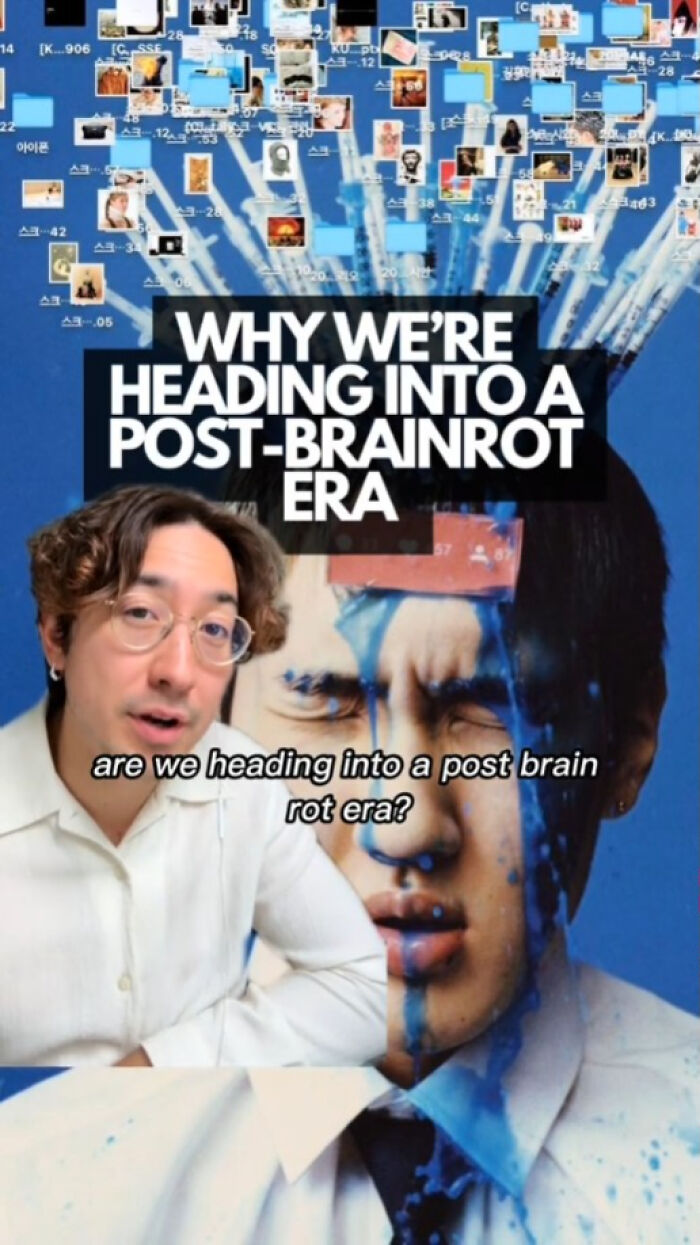
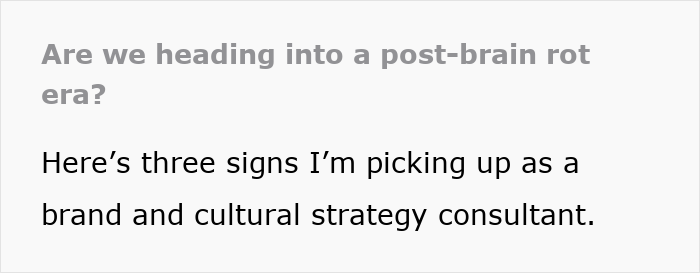
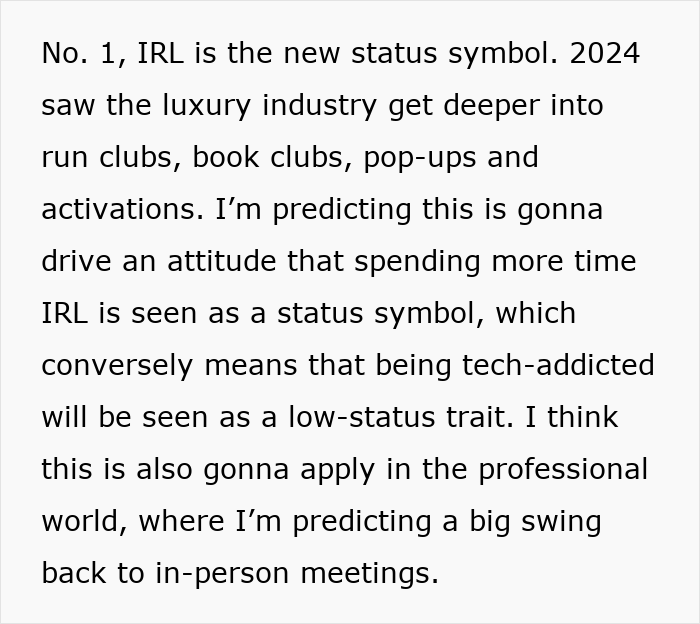

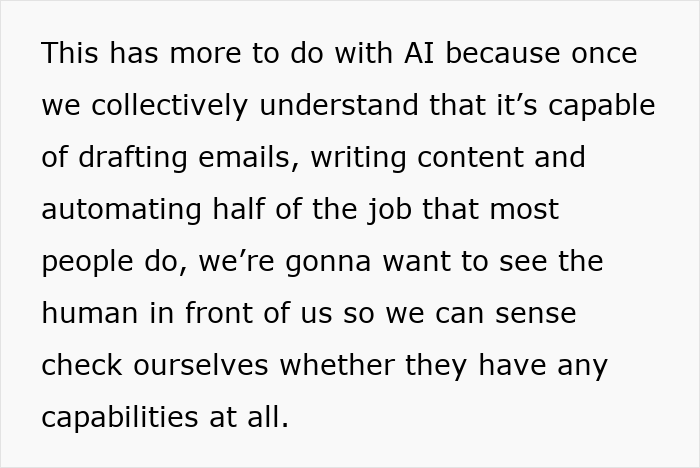
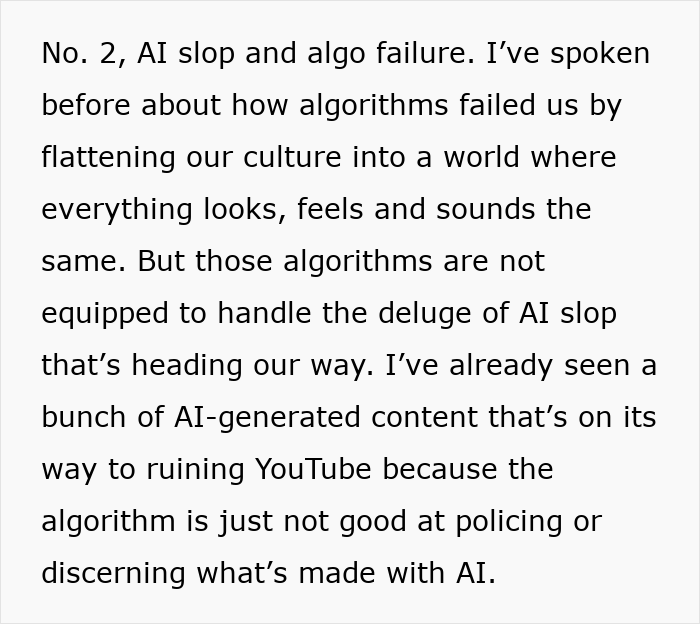
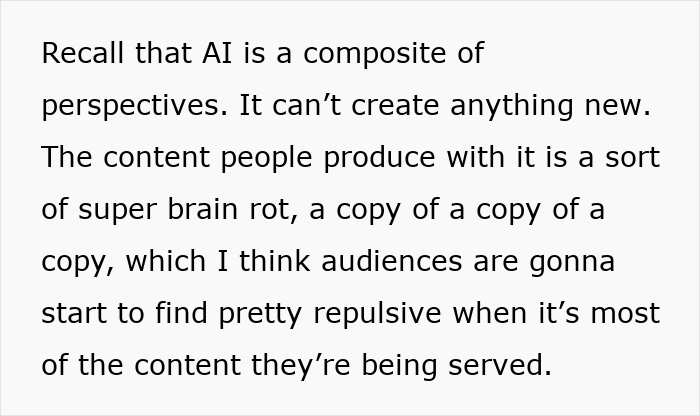

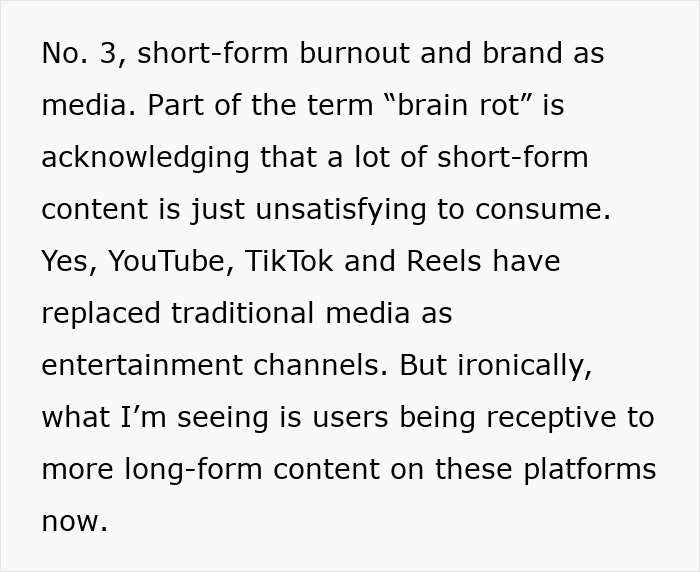
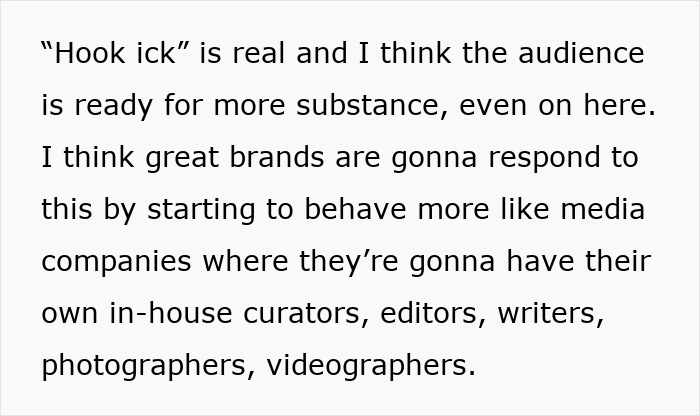
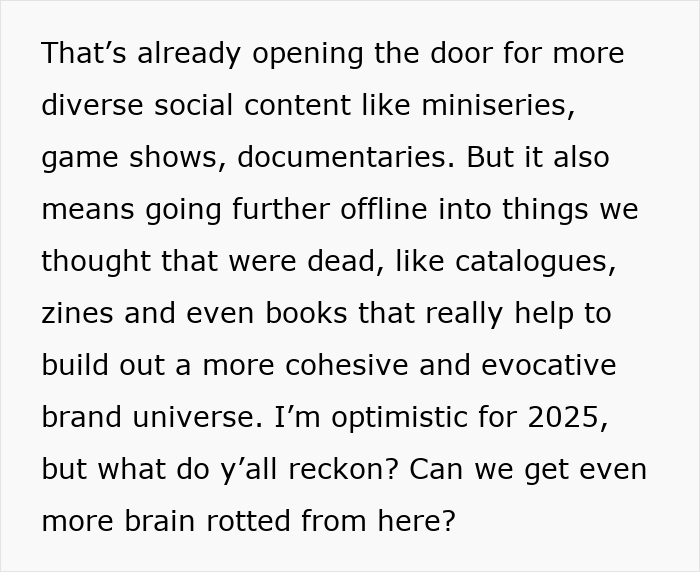


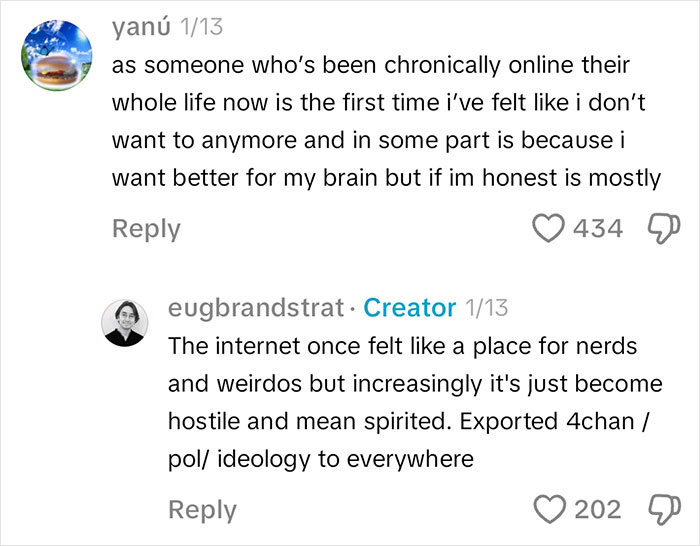
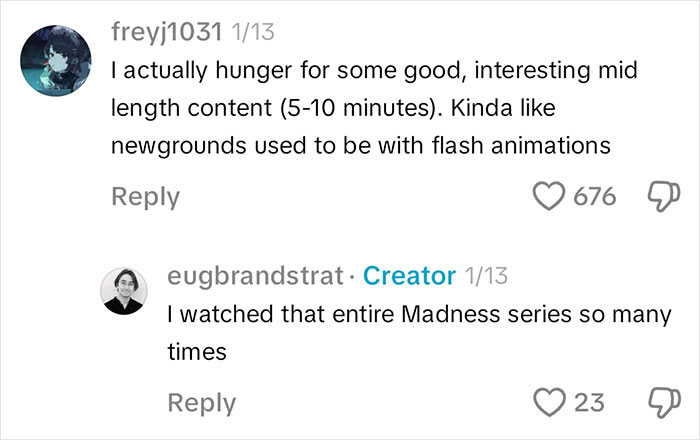



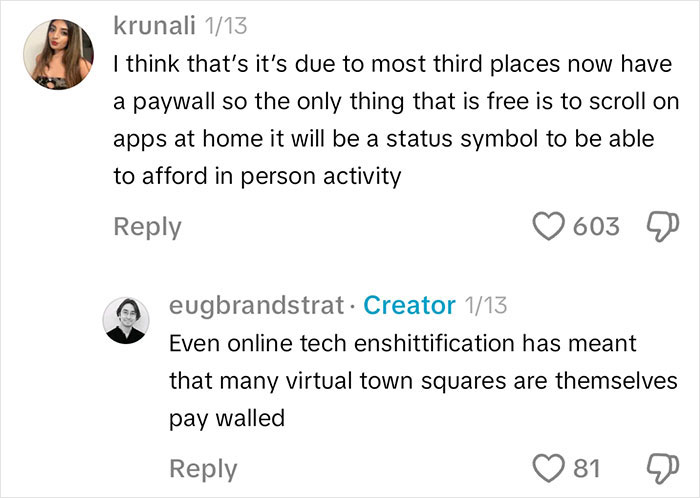




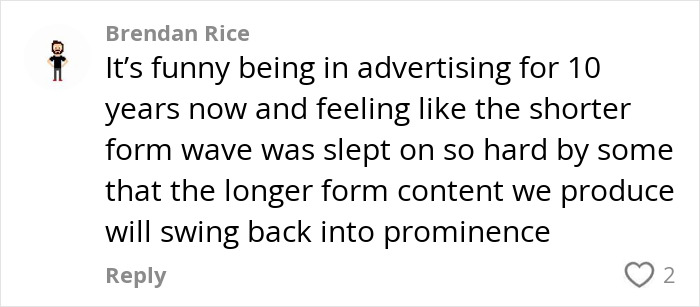
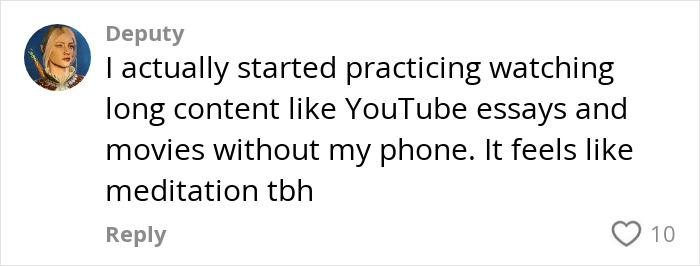






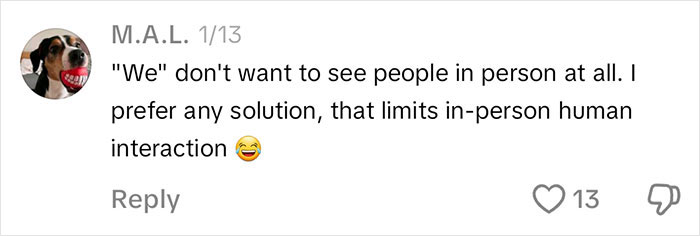
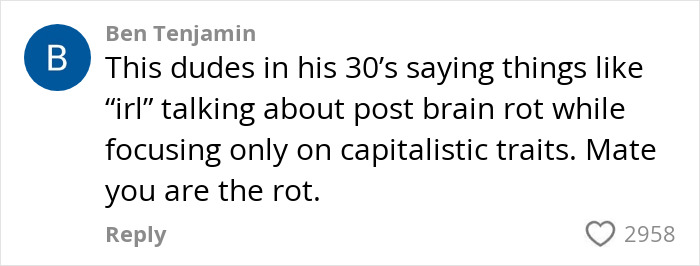



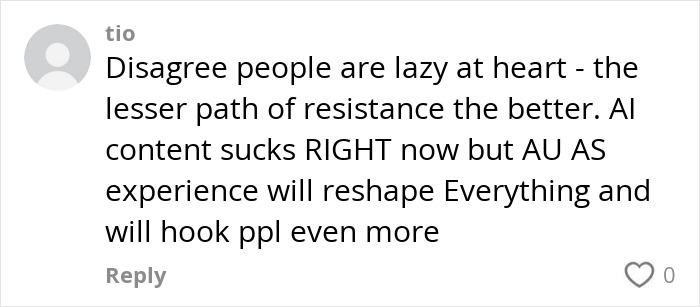
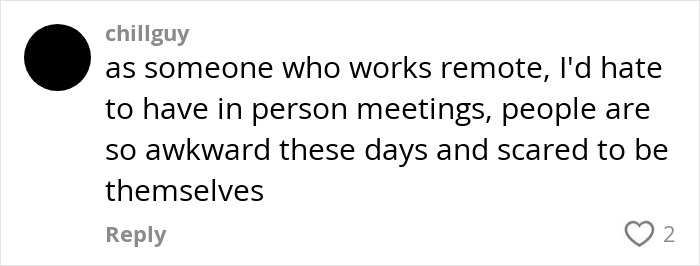














































26
19